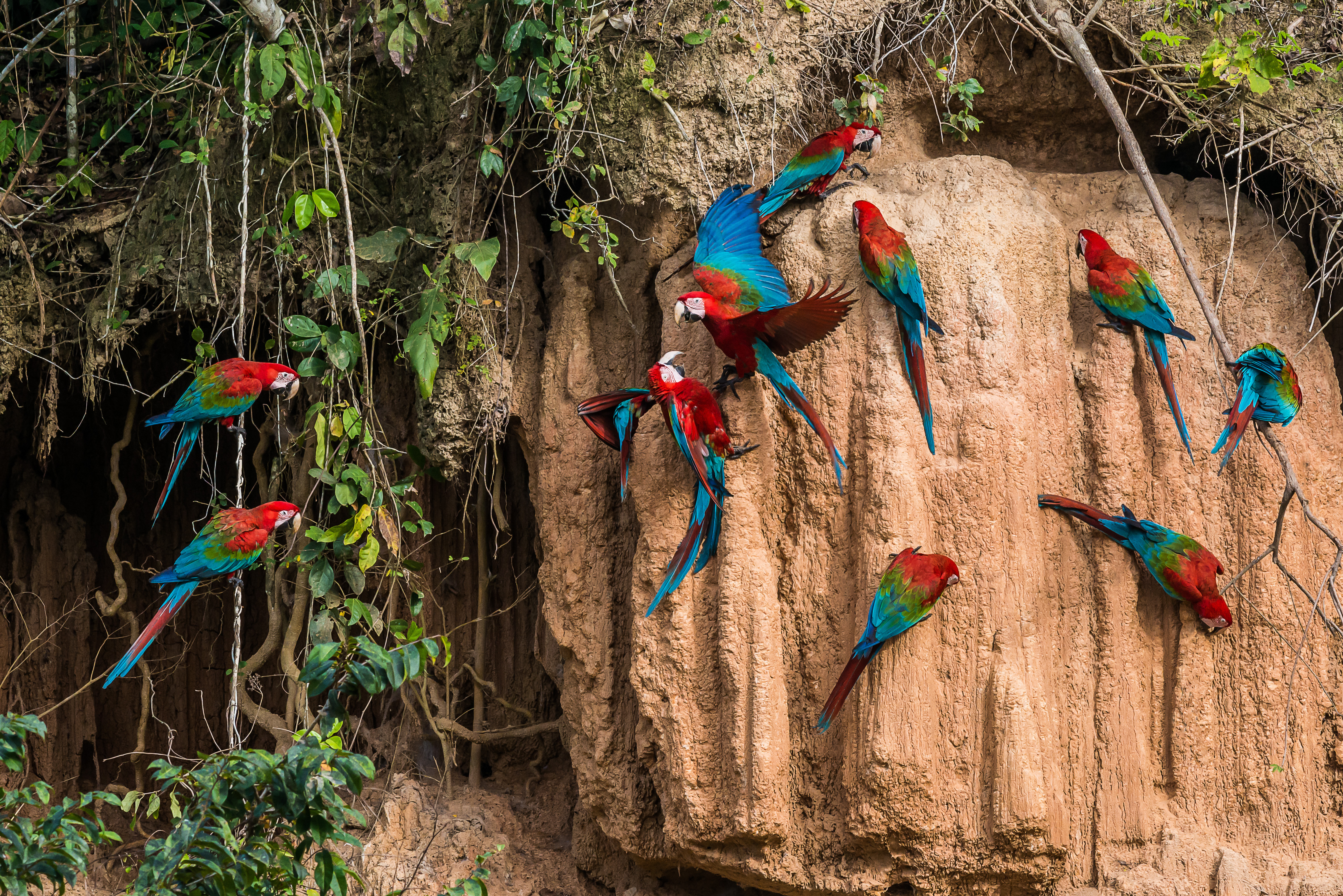
Biodiversity—the complex, dynamic, and incredible variability of living organisms on planet Earth—is a vital component of our ecosystem. Today, there are over eight million species of plants and animals in the world in addition to diverse ecosystems that host them, ranging from coral reefs to freshwater wetlands, lush forests to arid deserts. Humans, animals, plants, and these ecosystems live in delicate symbiosis with each other, but threats such as intensified agriculture, illegal plant and wildlife trafficking, industrial pollution, deforestation, and climate change are undermining the biodiversity we depend on to sustain us. Over the next ten years, the Earth may lose one in every four species to these threats. The United Nations estimates that it would take 1.6 Earths to meet the demands that humans make on nature each year.
Each year since 1974, the United Nations has celebrated World Environment Day on June 5, and this year’s theme is biodiversity. The purpose is to raise awareness about the threats to the environment and natural resources that we depend on, and to promote increased environmental protections. In celebration of this year’s theme, we are taking the time to highlight our staff and projects that support our environment and our planet’s awe-inspiring biodiversity.
DT Global’s Environment Team includes staff members based in our Australia, Spain, and U.S. home offices that manage environmental projects and provide technical assistance and guidance to a range of projects being implemented around the world. From supporting sustainable fisheries management in the Eastern Africa, Southern Africa, and Indian Ocean regions, to protecting watersheds in Peru and Colombia, to providing comprehensive environmental and biodiversity compliance globally, we integrate environmental safeguards into everything we do.
The coastal zone of Bangladesh is rich in biodiversity and includes a range of mangroves, saltmarshes, seagrass beds, coral reef, sandy beaches, dunes, estuaries, intertidal mudflats, and coastal wetlands that are home to a variety of marine species. The growth of industrial, commercial, or tourism activities in coastal areas has led to many ecological and environmental problems which require effective strategies for their management. Major threats to coastal biodiversity include population growth, ecosystem health, habitat modification, indiscriminate resources exploitation, and biodiversity extinction and annihilation.
The EU’s Blue Economy Integrated Coastal Zone Management (ICZM) project, implemented by DT Global, works across a multitude of sectors and agencies involved in coastal activities to provide a strong legal and institutional framework within which control of pollution, protection of biodiversity, and management of multiple agencies can be effectively undertaken. The ICZM approach emphasizes cross-sectoral management, strategic environmental assessment, systematic scientific research and public involvement to promote sustainable economic growth coupled with conservation in coastal areas. It may take time for the desired changes to take hold, but the integrated management system will undoubtedly lead to the development of the coastal zone in a more sustainable way.

The Amazon’s ecological significance is difficult to overstate. It contains the largest tropical forest and hydrographic basin in the world, and it represents about one-fifth of the global forests, including the world’s greatest diversity of species and endemic and endangered flora and fauna. But with deforestation rates once again on the rise, and climate change impacts disrupting ecosystems functions and local livelihoods, governments and the private sector alike are facing ever-greater challenges in designing infrastructure and extractive interventions that also minimize impact and safeguard these invaluable natural resources.
When it comes to the impacts of investments in infrastructure and extractive projects in the Amazon region, prudent selection of projects and proper planning is paramount. Projects need to anticipate and address the potential impacts of development upstream in the project cycle and identify good practices, including innovative technology to avoid, minimize, restore, and offset such impacts. For this reason, DT Global, through the USAID Amazon Best Management Practices project, developed a series of guidelines and compiled recommendations for use by stakeholders, including a reference guideline on good practices for Water and Biodiversity as one of its final products. The hope is that this will be an important contribution to stakeholders in the region on how to better safeguard biodiversity and enable a path for sustainable development.
The biodiversity of plant and animal life in Pacific Island forests and coastal areas offers a wealth of highly valued food and timber products that support local livelihoods through trade markets. The DFAT-funded Pacific Horticulture and Agriculture Market Access (PHAMA) Plus program, implemented by DT Global, assists Pacific Island countries in exporting and marketing fresh and processed plant and animal products using environmentally sustainable approaches.
Through the promotion of sustainable harvest certifications, organic production, and WTO fair-trade practices, Pacific Island states can maximize the value of export goods while safeguarding environmental resources and biodiversity assets for future generations. Best practices include gaining access for novel or sustainably grown products into new markets and helping to manage issues associated with maintaining and improving environmentally sound trade. Australia and New Zealand are markets of major interest, along with export markets beyond the Pacific. The PHAMA Plus program is proud to support island nations throughout the south pacific, including Fiji, Tonga, Samoa, Vanuatu, Papua New Guinea, and the Solomon Islands.
At DT Global, we are proud of our work support to the health and sustainability of our environment. Biodiversity is critical to the ongoing survival of the natural world, and the food we eat, the air we breathe, the water we drink, and the continuity of our everyday existence is highly dependent on the diverse and delicate ecosystems we inhabit. We invite you to help us raise awareness about the importance of protecting Earth’s precious natural resources this day, and every day.